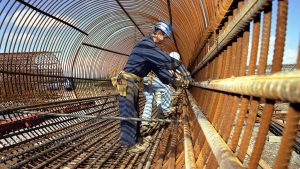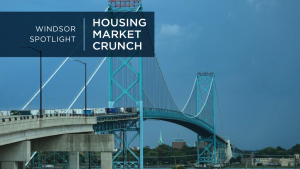The Ontario government has announced Workplace Safety and Insurance Board (WSIB) payment deferrals as well as other business tax relief in an economic statement that was otherwise primarily devoted to health care measures designed to combat the COVID-19 outbreak.
Finance Minister Rod Phillips unveiled what was billed as an action plan on March 25, with a full budget deferred till November. The spending plan includes $7 billion in new allocations for the health care system and $10 billion for tax and other relief including $1.9 billion to cover the WSIB deferrals.
Minister of Labour, Training and Skills Development Monte McNaughton announced details of the WSIB measures the next day.
“By making this change today, we are building upon the substantial financial help we are providing business owners and workers,” he said. “The top priority is to keep people safe.”
All employers covered by the WSIB’s workplace insurance are automatically eligible for the relief package and can defer premium reporting and payments until Aug. 31, 2020. They will not be required to opt in to receive the benefit.
As well, the WSIB will stop interest accrual on all outstanding premium payments and will not charge penalties during the six-month deferral period.
New Liberal Leader Stephen Del Duca suggested in an interview that the measure was significantly flawed, in that businesses will still be on the hook for the premiums at a later date.
“When I think of deferrals what I think about is come the first of September or thereabouts those bills will all come due,” he said. “A number of days ago I called upon the government to move forward with actual suspensions of payroll charges like WSIB premiums, EHT (Employer Health Tax) and a number of other things that small- and medium-sized businesses have to deal with in this moment when they are already close to the margins.”
WSIB public affairs manager Christine Arnott confirmed Del Duca’s interpretation.
“A deferral means that businesses will have to pay their premiums later,” she said via email. “We are deferring the premiums they would be paying now to later when they are able to be open and have stronger cash flow.”
Del Duca said the government should suspend the premiums for firms employing 300 or fewer, retroactive to Jan.1, instead of merely waiting for the payments to flow into the treasury later in the year.
“I think it would be better to say, look, we recognize there needs to be an infusion of support,” he said.
Other relief measures announced by Phillips included $5.6 billion for electricity cost relief programs for small businesses, further small-business electrical-bill savings through reforms to off-peak pricing, cuts of $355 million for about 57,000 employers through a proposed temporary increase to the EHT exemption, and five months of interest and penalty relief for businesses for the majority of provincially administered taxes, valued at $6 billion.
The government plans a deficit of $20.5 billion in 2020-21.
The Residential and Civil Construction Alliance of Ontario (RCCAO) praised the action plan in a release, with executive director Andy Manahan stating, “During this uncertain period, our labour-management alliance welcomes the efforts of the Ontario government to provide support and clarity to the construction sector and all our partners, including municipalities.”
The release noted that the RCCAO has encouraged the government to work with Ottawa to explore different revenue sources to maintain spending on infrastructure and other important services given the expected drop in revenues due to the pandemic.
Under the action plan infrastructure spending will decline by $1 billion compared to most recent interim figure, the RCCAO noted, falling to $13.5 billion.
“It is important to remember that infrastructure investments are an essential driver of the economy and are critical for Ontario to remain competitive in a global economy. As the government addresses the COVID-19 pandemic, we urge that the province places a high priority on making strategic infrastructure investments,” Manahan said.
Follow the author on Twitter @DonWall_DCN.










Recent Comments
comments for this post are closed